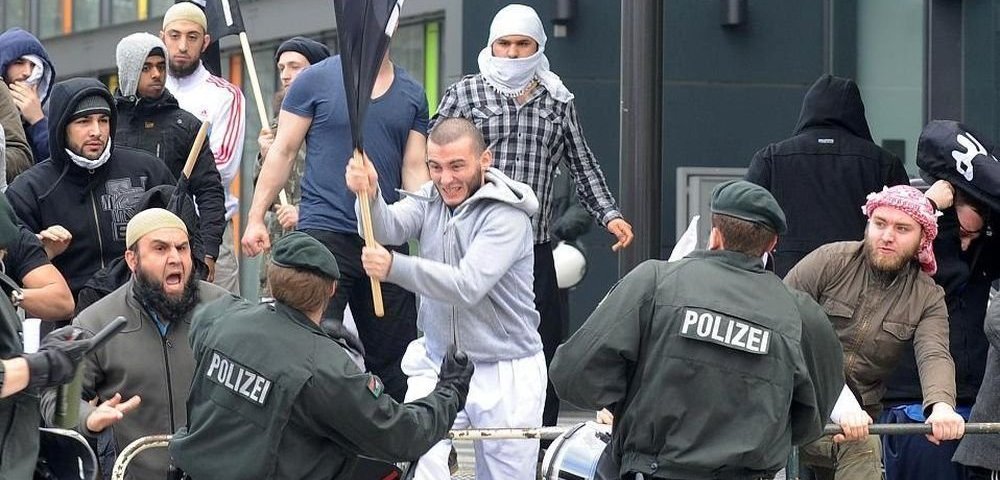German Chancellor Angela Merkel said in Tallinn that the EU should investigate the causes of refugee movements and continue to fight against illegal migration. On the one hand, extremists are entering Europe with the flow of migrants; on the other hand, the migrants themselves are being harassed by criminal groups. Russia continues to monitor the situation linked with the mass arrival of refugees from the Middle East and North Africa to Europe. As the official representative of the Russian Foreign Ministry Maria Zakharova said, according to the latest statistics of the European Asylum Support Office (EASO), it would be premature to say that the European Union has managed to completely resolve the migration crisis, despite a decreasing number of illegal immigrants arriving from Turkey.
The trend of steadily systemic growth in the number of asylum seekers, who often enter the EU in circumvention of the official routes known to Brussels, has not been overcome. In June alone, the EU registered over 120,000 asylum applications or 21% more than in May. In the first six months of 2016, over 630,000 international protection applications were submitted in the EU member-countries, and this is 200,000 more than in the first six months of 2015. "Faced with a growing number of asylum seekers, EU member-countries are still unable to process and analyse these applications on time. In late June, the EU authorities registered almost 990,000 unprocessed applications, an all-time high. The situation with illegal migration via the central Mediterranean region has not normalised either," Zakharova said.
The Frontex agency estimates that in July alone over 25,000 people were apprehended trying to illegally enter Italy by sea. This is 12% more than in the same period of 2015. In the first seven months of 2016, almost 95,000 illegal immigrants were registered in the central Mediterranean region, most of them from African countries.

Despite the EU’s efforts on this route more and more illegal immigrants continue to perish at sea. According to the International Organisation for Migration, 3100 people have perished in the first seven months of 2016, as compared to 1900 over the same period of 2015.
The OSCE has accumulated a certain potential in resolving the current migration crisis in Europe with due consideration for its comprehensive security concept.
"OSCE executive bodies (the Secretariat, the OSCE Office for Democratic Institutions and Human Rights and the OSCE High Commissioner on National Minorities) could conduct a comprehensive assessment of the situation on the EU’s domestic and external borders, assess the potential risks of conflict and crisis situations, draft recommendations for the EU member-states concerned, monitor compliance with fundamental human rights and freedoms in refugee-transit and refugee-hosting countries," the Russian Foreign Ministry believes.
The Russian Foreign Ministry is concerned about the fact that migration in the EU is closely linked with organised crime. Europol and Interpol estimate the revenues of this business at $5 or $6 billion for this year alone. Illegal immigrants in EU countries are vulnerable to all sorts of exploitation (worker exploitation, sexual abuse, forced involvement in illegal drug trafficking and other forms of organised crime).

Clearly, the work of the Office of the OSCE Special Representative and Co-ordinator for Combating Trafficking in Human Beings remains in high demand. Women and children are the most vulnerable refugee categories. Europol estimates that over 10,000 children of immigrants who arrived in Europe unescorted by adults have gone missing over the past two years. Many of these children have probably become victims of either sexual slavery or slave labour.
Moscow has urged the EU to adopt a more responsible approach to its international obligations in the provision of protection guarantees to immigrants, not to erode the so-called asylum institution, to focus on creating additional legal migration channels, to ensure proper control over migration flows and to streamline readmission mechanisms.
"Everything possible should be done to prevent terrorists from infiltrating European countries together with people who really need help. Russia consistently advocates coordinated international efforts to eliminate the root causes of the current migration crisis, primarily by achieving a peace settlement in Syria, Libya and Iraq," Zakharova said.






